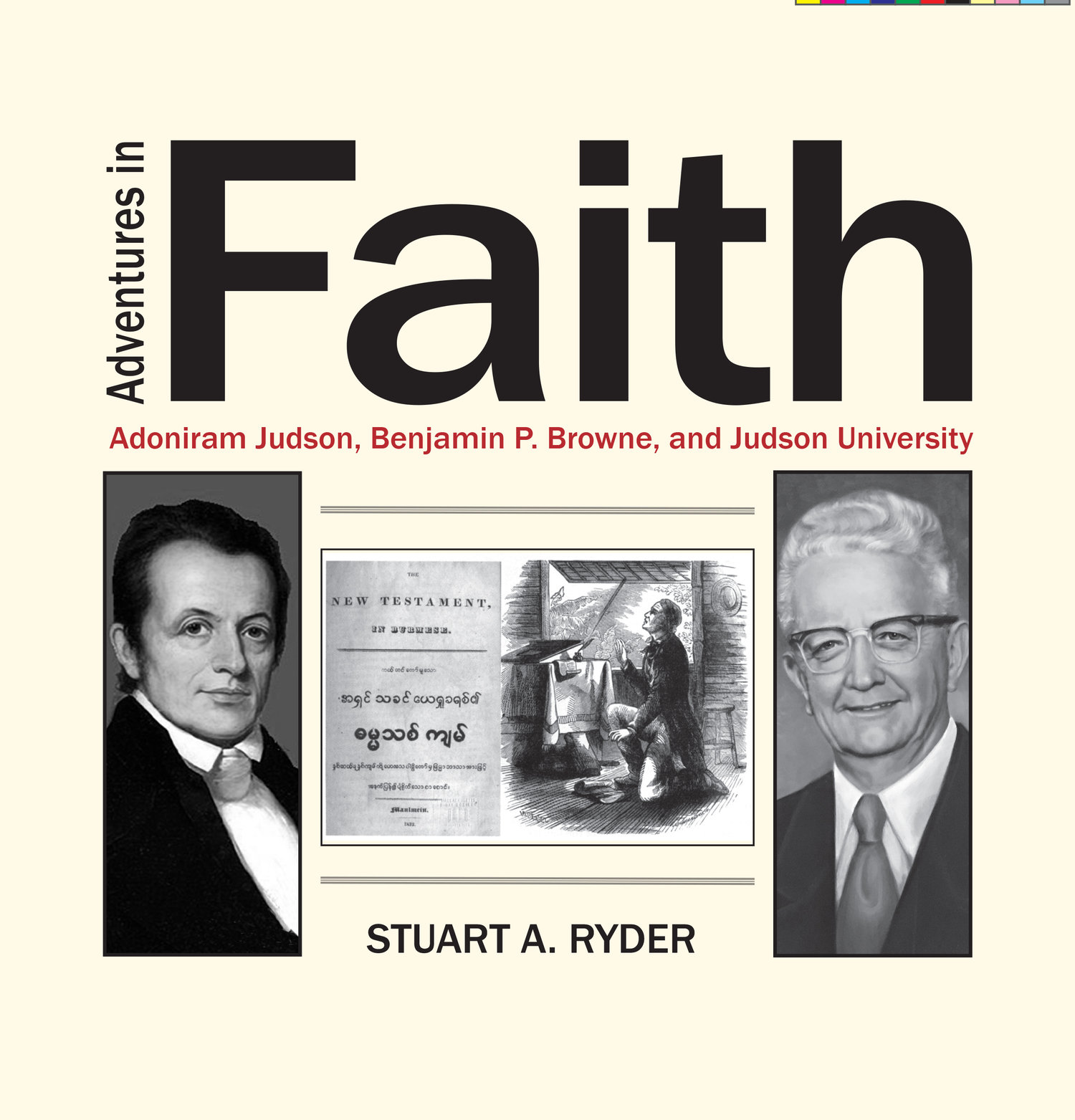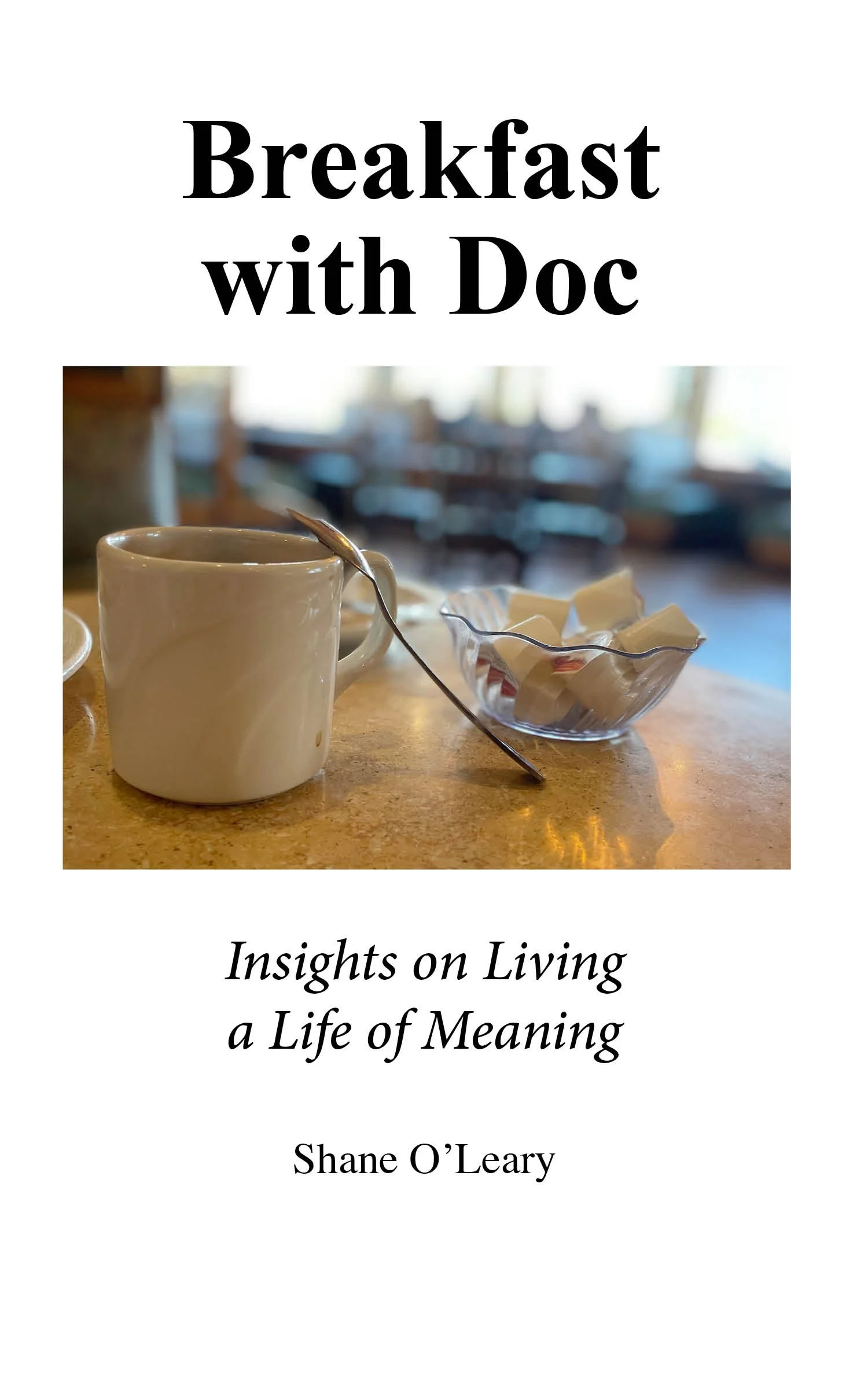Breakfast with Doc
Why did Doc Ryder have such a profound impact on thousands of students and dozens of colleagues?
What was he really like? How did he shape others—not just through his teaching, but through the example of his life? You’ll find the answers in Breakfast with Doc.
In Breakfast with Doc, Sean O’Leary shares a warm and insightful portrait of this campus icon, drawn from his time as both student and personal assistant during Doc’s later years. Through countless breakfasts at the Big Skillet, Sean witnessed Doc’s wisdom, humor, and character firsthand.
For those who knew Doc, these stories will spark memories and smiles. For those who didn’t, Doc’s life may still offer inspiration and direction. So pull up a chair, pour a cup of coffee, and begin your day with a chapter from the unforgettable Doc Ryder.
From the Prologue to Breakfast with Doc
I’m writing this following the call I’ve been dreading for 6+ years.
“It could happen tonight.”
It’s 10:30 pm and even if I headed over there right now, it’s highly unlikely they would let me in. So I’m stuck here, hoping he can hang on until the morning. If so, I’ll take the day off and drive up to see him one last time.
I left a message with Lawson, letting him know the situation if he wasn’t aware already. My guess is that he doesn’t know, so hopefully my morning voicemail will be the first time he hears about it. He needs to see him, too.
Hang on, Doc.
If there is one thing that Doc does very well, it’s being stubborn. He knew his age and repeated it constantly, but he didn’t let it change his routine too much. His mind was always sharp as a tack because he never let it slow down. He was still reading Dante and Augustine into his 90s because he refused to take life easy. He kept walking even when he needed a walker and a oxygen tank with him. He kept going to breakfast and doing a book study with us, even as his body couldn’t keep up. He has to hang on. He’s never been one to back down from adversity.
A tried and true New Yorker, Stuart Ryder attended the prestigious Yale University in the late 40s. By his own recollection, he was not the smartest person in the classroom, but he worked hard and took his education seriously. He took advantage of every opportunity that interested him, including learning from Rudolph Bultmann when he came to speak at the school. I’m not sure if he ever told us what kind of grades he received, but I’m sure he never asked why he didn’t get an A. He knew what work was needed to succeed, and he always made the effort to accomplish it.
After school, Doc had a few stops, including as a teacher at an all-black school in Texas, before he accepted an offer from a new, tiny Baptist college an hour outside of Chicago. Why a Yale grad would accept such a position in Elgin, Illinois, at a school hardly anyone knew the name of (even today!), I’ve never been able to figure out. Maybe it was because he felt a calling. Maybe he was simply young and naive and jumped at the miniscule opportunity. Perhaps, as I suspect, it was the thrill of the adventure that enticed him the most; the unknown future being on a campus with only two buildings. One thing is for certain: Judson College got more than they ever could have imagined when Stuart Ryder signed on to the faculty.
I’ve come to find that a common theme in Doc’s life, because I too received infinitely more than my wildest dreams the moment I opened the door to Doc’s small campus apartment on an early autumn night in 2013. I went because I felt obligated. I went to simply say thank you and then leave, having done my due diligence. I thought that saying goodbye would be no more difficult than leaving a restaurant.
Eight years later, at 10:30 pm, my only prayer is that I will have the chance to say that last goodbye.

